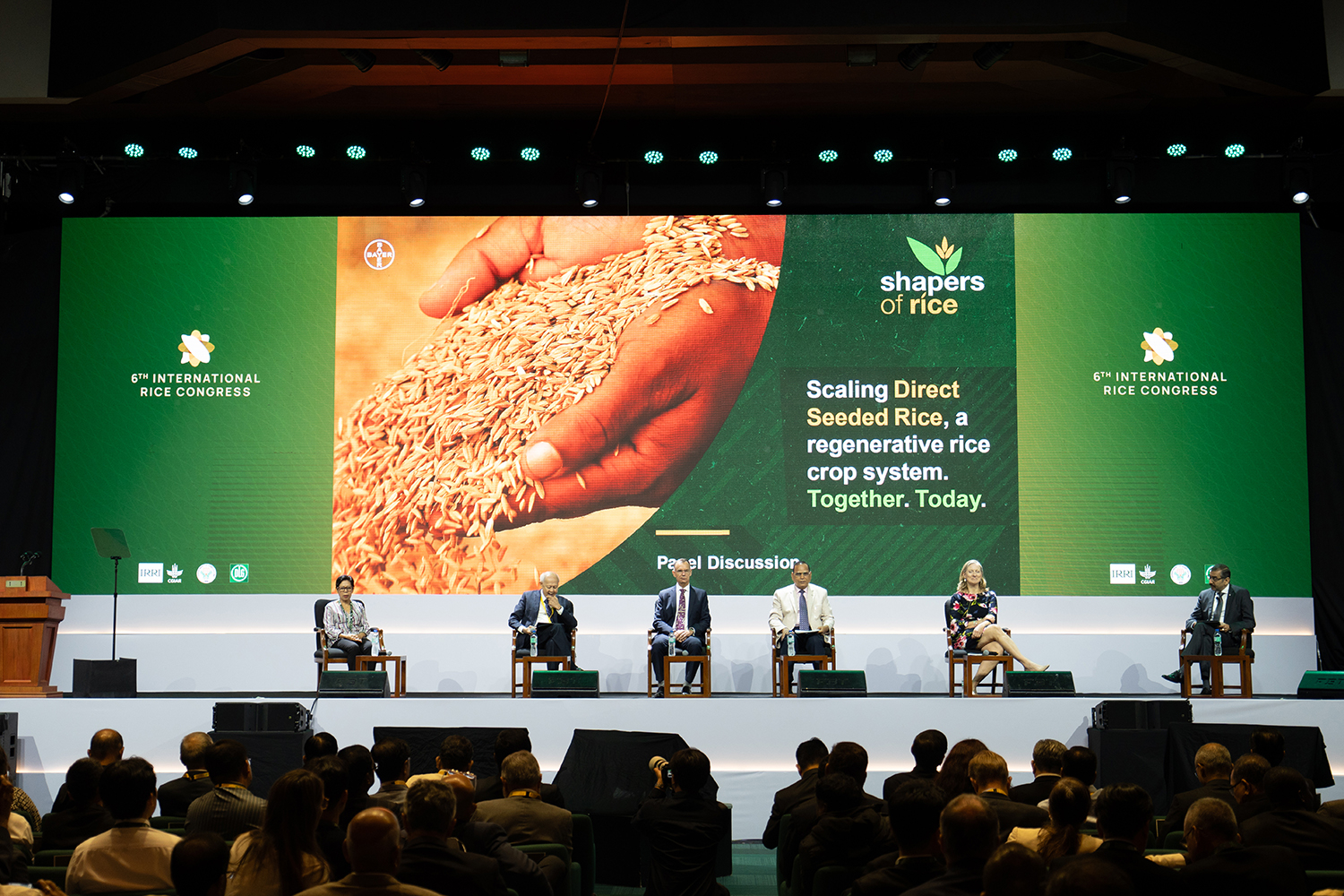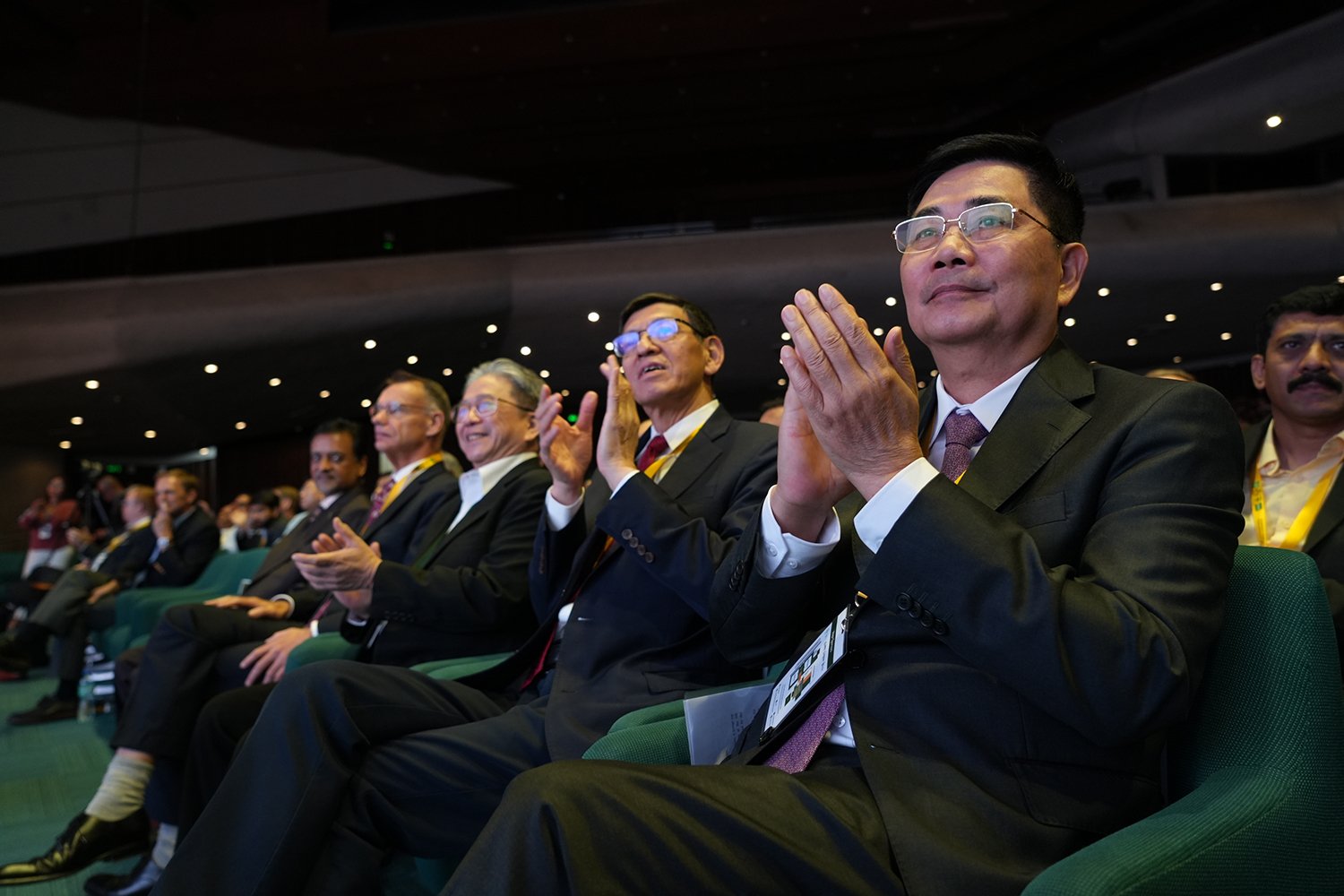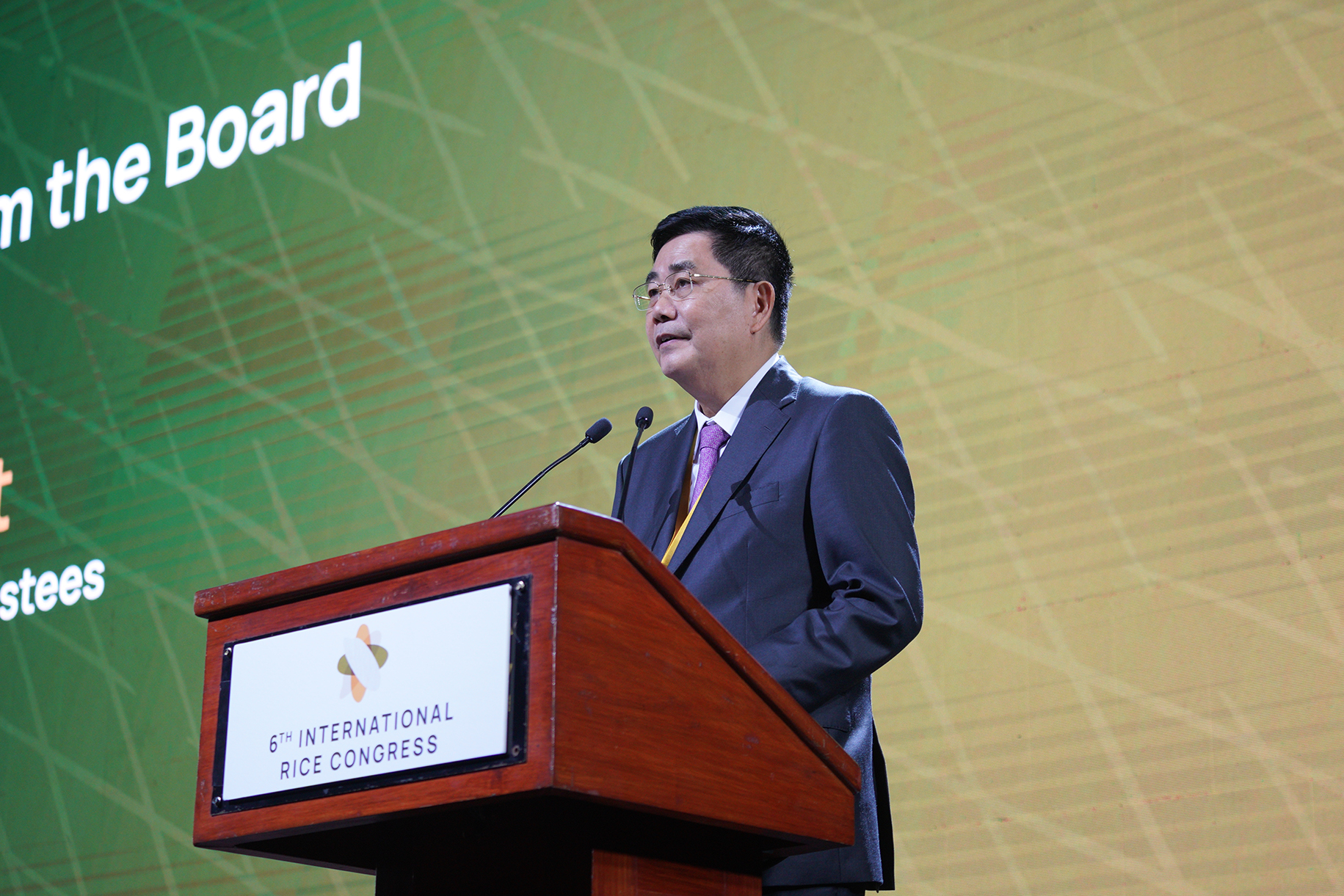June 16, 2025 | 11:17 GMT +7
June 16, 2025 | 11:17 GMT +7
Hotline: 0913.378.918
June 16, 2025 | 11:17 GMT +7
Hotline: 0913.378.918
The International Rice Congress – IRC 2023 is the biggest event in rice science, organized by the International Rice Research Institute (IRRI) and the Philippine Department of Agriculture (DA). Join thousands of participants from around the world as they convene, converse, and converge, sharing their expertise and formulating actionable plans to attain evidence-based solutions to some of the biggest challenges of the global rice sector.

Panel discussion at IRC 2023. Photo: IRC.
“This major event couldn’t have come at a better time,” says Bas Bouman (Chair, IRC 2023 Overall Organizing Committee and Research Director – Sustainable impact through Rice-based System, IRRI). “Global agriculture faces tremendous challenges to meet a growing population’s food, nutrition, and health demands while doing so under increasing pressure from declining resources, climate change, and the need for a clean environment.”
Adaptation to, and mitigation of, climate change may well be the single biggest challenge facing the world’s rice sector – now and in the coming decades. Already, climate change-induced events such as severe droughts and flooding are significantly reducing volumes of rice available for export in an unpredictable manner, prompting exporting countries to announce restrictions on exports.
Such announcements send tremors through the global rice market, prompting spikes in international and domestic rice prices with all the negative consequences for the millions of poor people who depend on rice for their daily diets. Export restrictions have the potential to unravel the food security of countries that rely heavily on rice imports to meet their domestic demands for this most important staple.
The world is in urgent need of a major systems transformation in the way food is produced, marketed, and consumed, and the rice sector – with its enormous footprint in terms of resource use and provider of staple food to roughly four billion people – can make a major positive contribution.

IRC 2023 comes at a crucial time. Photo: IRC.
There is a general recognition that public support for the rice sector needs to be revisited with a view to improving public spending effectiveness and efficiency. Therefore, the IRC doesn’t stop at science.
Former Minister of Agriculture and Rural Development Cao Duc Phat, Chairman of IRRI Member Council sent a message to the Congress: “Rice is a major staple for more than half of the world's population, as so must also positively contribute to better nutrition and health. Ensuring sustainable supply and distribution of rice with affordable prices is the key factor for maintaining social and political stability in many countries and the world. At the same time, improving the rice sector is a main way for further improvement of income and livelihood of hundreds of million small rice growing farmers.
Adapting to climate change is critical for the farmer's livelihoods and the country's food security. At the same time, if we want to mitigate climate change through agriculture, rice is the best commodity to make an impact.”
Mr. Phat calls for improving productivity, profitability, nutrition, and food security through advances in rice systems. Creating a future without hunger is a complex endeavor that requires collective efforts. Continuous progress must be made with us all working collaboratively together.

Former MARD Minister Cao Duc Phat, Chairman of the IRRI Board of Trustees sends a message to the International Rice Congress 2023. Photo: IRC.
At IRC 2023, rice experts will present and discuss genetic approaches and rice breeding; research on microflora and soil health; digital farming, big data applications, artificial intelligence, nanotechnology, remote sensing tools, drones, etc.
In particular, transforming the rice value chain does not stop at applying science and technology. The global rice industry needs to discuss, negotiate, and review public policies, thereby resolving some problems regarding price fluctuations, free trade, and differential market segmentation, etc. Therefore, IRC 2023 acts as a bridge between agricultural leaders around the world. Public-private partnership will be the key to solving the biggest challenges facing the rice production industry. Public-private partnership will be the key to solving the biggest challenges facing the rice production industry.
The organizing committee hopes that delegates participating in IRC 2023 will have a comprehensive view of food system transformation, a sustainable vision for the future and a clear awareness of the history of wet rice culture.
1,000 presentations and more than 500 scientific posters are a database of experiments and practical applications, contributing to providing solutions to the biggest challenges of the global rice industry.

(VAN) The working delegation from the Ministry of Agriculture and Environment conducted an important trip to the Netherlands to strengthen strategic partnerships and sustainable development in the agricultural sector.

(VAN) The letter ‘A Plea from the Ocean’ not only evokes emotion but also awakens the human conscience to the responsibility of protecting life on Earth.

(VAN) The Department of Agriculture in South Africa has announced the country’s first mass vaccination of poultry to prevent local birds from contracting avian influenza.

(VAN) Establishment of the Mekong Delta Regional Agricultural Linkage Center, aiming for a closed value chain, deep processing, trading platforms, and international market connectivity.

(VAN) Gia Lai province has recently recorded 460 rare species of animals and plants, contributing to forest conservation and biodiversity planning in the region.

(VAN) Ms. Caroline Beresford, New Zealand Ambassador to Vietnam, expressed confidence that agricultural cooperation between Vietnam and New Zealand will develop sustainably, be climate-resilient, and promote gender equality.

(VAN) Vietnam reaffirms its commitment to international cooperation in fostering sustainable and responsible fisheries while ensuring resilient livelihoods for small-scale fishing communities.